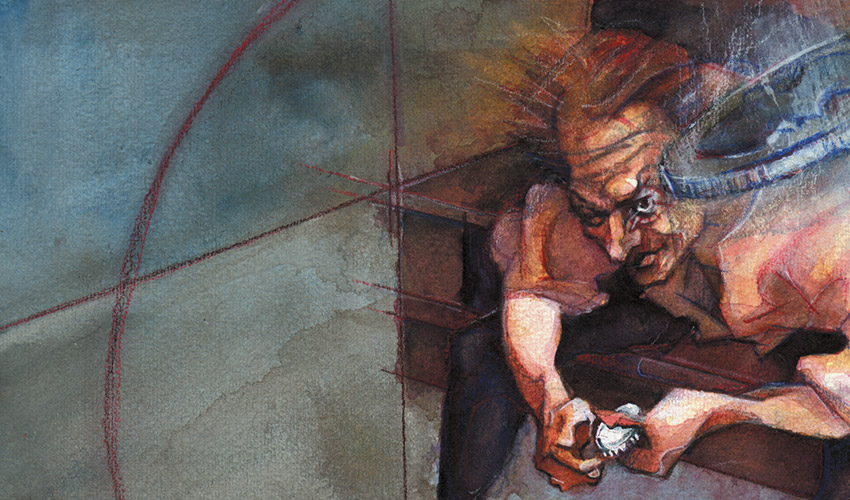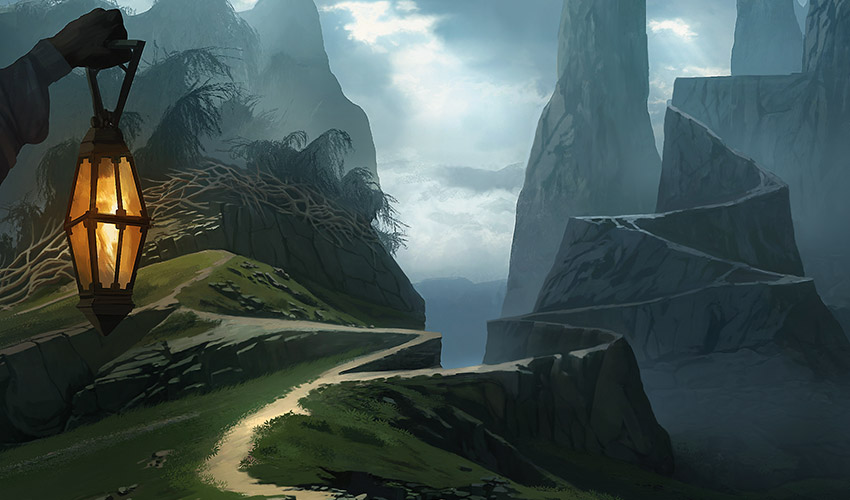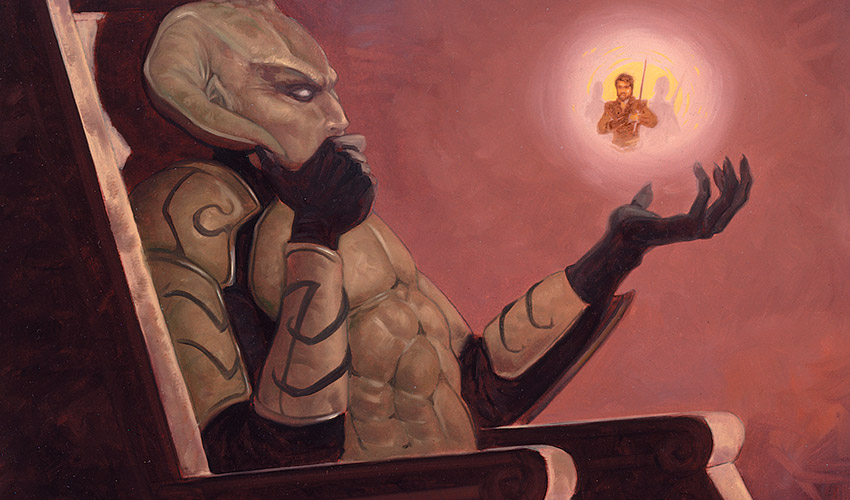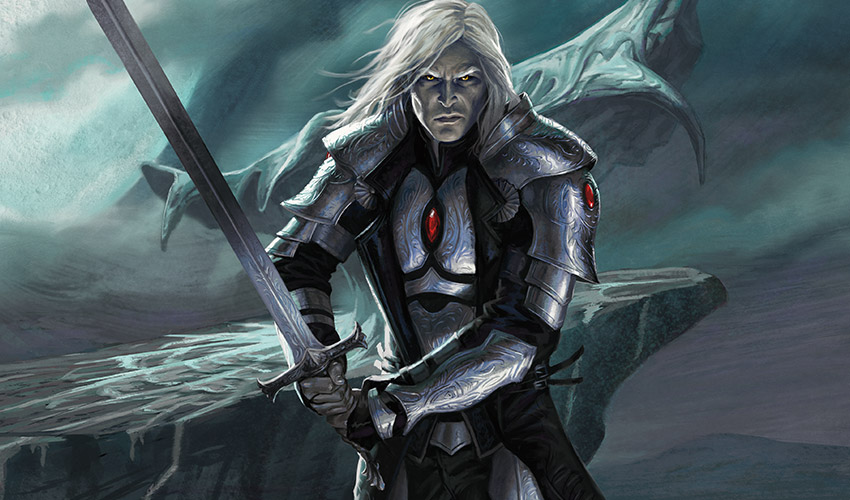Finding the Value
Picture this.
You're locked in a Standard green midrange mirror, with you playing white-black-green and them playing something that at least looks pretty similar.
You've played a long back-and-forth game, trading resources pretty much in lockstep with your opponent. Your hands are both empty, and you're both sitting at 6 life with plenty of basic lands on the battlefield.
You go to your draw step, pull the top card of your library into your hand, and see this staring back at you:
You have a juiced-up Sylvan Advocate in your graveyard as the most appealing target the Rallier could bring back. What do you do?
Let's talk about it.
Finding Value
Renegade Rallier is one of many in the class of cards that need another requirement to be met in order to get full "value" out of them.
Sure, it's still a 3/2, but you aren't putting it into your Constructed deck for that. You're playing it because of the revolt effect.
There are tons of examples of losing value throughout Magic. Casting Ishkanah without delirium. Barter in Blooding away only one creature. Even just sacrificing a Clue token before you get that Tireless Tracker down from your hand. It's you choosing to use your card before you could have gotten its full effect.
And yet, sometimes this is correct! As much as it might break Marshall Sutcliffe's heart (and mine too, really), waiting for the maximum value is not always the right play.
Remember this: the only value—the only kind of advantage—that truly matters in competitive Magic is not who drew more cards; or who had tempo advantage; or who soul-read their opponents hand, card for card, the entire game. It's game advantage, pure and simple. Everything else is a means to an end. If you want to win, win the game.
I've won games by killing four of my own creatures with a Pyroclasm, chump blocking with my only Pack Rat, and countering my own spell. If it leads you closer to victory (and it's all above board, of course), then take it.
Okay. So. The question at hand: should you cast the Rallier now and threaten your opponent's life total, or wait and try to get revolt to bring that huge Advocate back into the fray?
There are three primary things I tend to look at in any situation like this. Let's take a gander!
Risk Versus Reward
The first question I'd want to ask in any of these scenarios is what is the risk versus the reward here. You are both at 6 life. What is the risk, both ways?
If you play the Rallier here, the reward is that your opponent might draw lands for two turns and you just take the game—as simple as that.
Maybe you get in for 3 damage and then they find a creature, in which case it's still been effective. It also means they can't play it slow: if they end up in a similar position, they can't hold onto their Rallier. They'll need to play it to block yours.
But then there's the risk. If they draw something that your Rallier can't attack into, or a removal spell for it, you've kind of "thrown away" that future Sylvan Advocate. And you may very well need that Advocate to have a chance. If they draw, say, an Advocate of their own, the Rallier is just going to be a speedbump on its way to smashing your face in!
Then there's the other side of the coin.

The upside reward on getting that Advocate is huge. If the game keeps on grinding back and forth like it has so far, there's a good chance you'll get that Rallier online eventually. This is a sort of inevitability that could be everything in this longer game.
The downside, of course, is that there's no guarantee you're going to find that revolt enabler. You could just draw lands for the next few turns.
Worse yet, your life total is low, too—so if your opponent draws a threat, you may be forced to play the Rallier out anyway to be defensive. That puts you on the back foot. Instead of you proactively offering up trades, your opponent could find a removal spell for your creature before you can block, and so on.
In any situation like this, try to weigh the risk and reward of your options. What brings you closest to winning the game?

Sometimes, using this method, the answer is more obvious than you might think. Sometimes it's as simple as "If I don't play Ishkanah right now to block, I'm going to lose." And if that one creature is just as valuable as three, I'm happy to Barter in Blood it away—especially if they think I have Barter and are going to intentionally not play into it.
Okay—so you can see the upsides and downsides of each path. Now how about some context?
Your Context
To make an informed decision here, you should think about what you know of your own deck and the board state.
Take a moment. Trawl through your graveyard. Think about what you have—and what you have left.

In this situation, you generally want to cast the Rallier if you're unlikely to find another way to trigger it. If you only have, say, three ways left in 30 cards, then—unless you are expecting the game to go much longer—I wouldn't take that one-in-ten chance.
The opposite is also true. If you're extremely likely to find the enabler, then it makes more sense to hold onto it.
How many lands are left in your deck that you could draw?
What other threats could you find?
If you just manage to get in for 3 damage before your opponent cuts you off, do you have anything else (like a burn spell or a haste creature) that's going to easily deal 3 and provide inevitability, or are you going to rely on drawing more creatures then, too?
These are the kind of questions to ask of your own deck.
And, of course, if the life totals were different, this situation would be another discussion. If your opponent is at 3, then I'd absolutely threaten them in one attack. If they were at 20, I'd hold my Rallier.
Context matters...
Their Context
...And it's not just about your deck: It's about theirs, too!
What do you know about what they could have? This is where I tend to look back into their graveyard or think about what they've played this game.
Do they have some kind of inevitability in their deck that's going to make you just lose if they draw it? If you know they have planeswalkers like Sorin, for instance, then the onus is on you try to end the game quickly by attacking. (As opposed to the opposite, where you'd be okay making the game take more turns.)

Do they have discard in their deck? If so, keeping cards in your hand is weaker.
What cards have they already run through this game? What haven't they drawn much of? If you know they tend to have a lot of removal and you've only seen one card, it's more likely removal is coming up.
Just as crucial as knowing what you might draw or be trying to do is knowing what they're gunning for, too. Understanding how badly you need to shut the door on this game will inform your plays greatly.
Appropriate Value
Aggressive or defensive? Hopeful or pessimistic? Safe or greedy? Did you decide what you would do yet?
Well, as evidenced by the above two sections on context, we don't have all of the information. That can tilt it one way or another.
Me? I'd lean toward playing the Rallier. It's the more aggressive play—but it basically says that if you can fade two of your opponent's draws, you win. Plus, you can still draw plenty to help the cause even if your opponent does draw well. They could draw a creature and you could find a removal spell—and so on.
But what do you think? What would you do? Let me know by sending a tweet, sending me a message on my Tumblr, posting on Reddit, putting signs on a Seattle highway, or whatever other way you want to get my attention.
I'll be back next week. May you find value in all the right places—and enjoy Aether Revolt!

